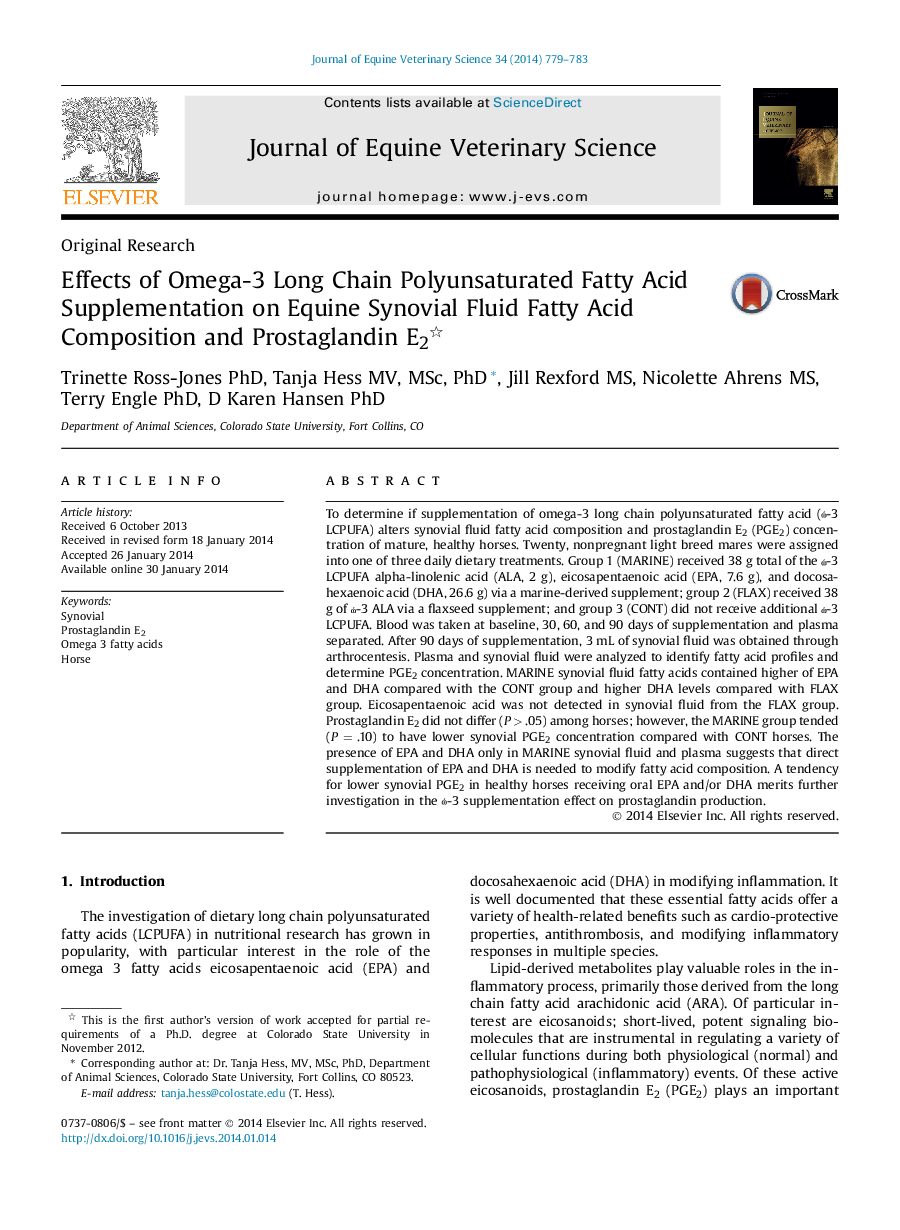| Article ID | Journal | Published Year | Pages | File Type |
|---|---|---|---|---|
| 2395195 | Journal of Equine Veterinary Science | 2014 | 5 Pages |
To determine if supplementation of omega-3 long chain polyunsaturated fatty acid (-3 LCPUFA) alters synovial fluid fatty acid composition and prostaglandin E2 (PGE2) concentration of mature, healthy horses. Twenty, nonpregnant light breed mares were assigned into one of three daily dietary treatments. Group 1 (MARINE) received 38 g total of the -3 LCPUFA alpha-linolenic acid (ALA, 2 g), eicosapentaenoic acid (EPA, 7.6 g), and docosahexaenoic acid (DHA, 26.6 g) via a marine-derived supplement; group 2 (FLAX) received 38 g of -3 ALA via a flaxseed supplement; and group 3 (CONT) did not receive additional -3 LCPUFA. Blood was taken at baseline, 30, 60, and 90 days of supplementation and plasma separated. After 90 days of supplementation, 3 mL of synovial fluid was obtained through arthrocentesis. Plasma and synovial fluid were analyzed to identify fatty acid profiles and determine PGE2 concentration. MARINE synovial fluid fatty acids contained higher of EPA and DHA compared with the CONT group and higher DHA levels compared with FLAX group. Eicosapentaenoic acid was not detected in synovial fluid from the FLAX group. Prostaglandin E2 did not differ (P > .05) among horses; however, the MARINE group tended (P = .10) to have lower synovial PGE2 concentration compared with CONT horses. The presence of EPA and DHA only in MARINE synovial fluid and plasma suggests that direct supplementation of EPA and DHA is needed to modify fatty acid composition. A tendency for lower synovial PGE2 in healthy horses receiving oral EPA and/or DHA merits further investigation in the -3 supplementation effect on prostaglandin production.
